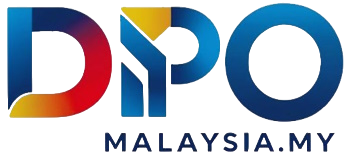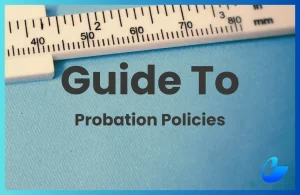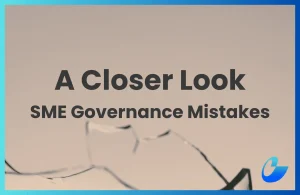Ready to appoint a DPO in Malaysia?
See our step-by-step DPO-as-a-Service process on dpomalaysia.my!
As we strive to serve organisations as their Data Protection Officer (DPO), the ELP team has built a thorough understanding of the Personal Data Protection Department’s (PDPD) guidelines, requirements, and recommendations.
Over time, we’ve written guides covering different aspects of DPO appointments, and this FAQ combines them all into a single, easy-to-navigate resource for anyone looking to understand the DPO selection, appointment, and management process.
Appointment requirement
Who is required to appoint a DPO in Malaysia?
Starting 1 June 2025, all Malaysian businesses that meet the thresholds set under the Personal Data Protection (Amendment) Act 2024 must appoint a DPO:
- process personal data of more than 20,000 individuals
- handle sensitive personal data (e.g. health) of over 10,000 individuals, or
- business activities involve regular and systematic monitoring of individuals
If your organisation does not meet these thresholds, you may maintain a record of the justification for not appointing a DPO.
What if an organisation doesn’t meet the threshold for appointing a DPO?
If a DPO isn’t mandatory, a senior officer must still be designated to handle breach reporting, act as the PDPD contact, and maintain compliance records.
Key roles and qualifications
What is the main role of a Data Protection Officer (DPO)?
A DPO is responsible for ensuring an organisation’s full compliance with Malaysia’s Personal Data Protection Act 2010 (PDPA).
This includes implementing data protection policies, supporting impact assessments, liaising with the Commissioner and data subjects, and ensuring prompt reporting of any data breaches.
What are the essential eligibility criteria for a DPO?
To qualify as a DPO, the person must:
- be physically present in Malaysia for at least 180 days per year;
- be easily contactable;
- be proficient in Bahasa Melayu and English;
- have no conflict of interest;
- understand the organisation’s operations; and
- report directly to top management
Ideally, they should also have expertise in Malaysian data protection laws and practices.
What are core DPO job functions?
- Advisory & Support
- Risk Management & Assessment
- Compliance Oversight & Monitoring
- Audit & Reporting
- Communications & Stakeholder Engagement
- Regulatory & Data Subject Management
Are there any academic or professional requisites to be DPO in Malaysia?
No. There is no formal academic or professional qualification required, but the DPO must still meet several baseline requirements under the PDPA.
Competency and training
What does “DPO Competency” mean under PDP guidelines?
It refers to two tiers of capability: The Fundamental Tier (basic competencies required for all DPOs) and the Advanced Tier (higher-level skills for complex or high-risk organisations).
What is the DPO Competency Guideline KSA model?
It is a model that outlines core capabilities a DPO must demonstrate in three areas:
- Knowledge – Understanding PDPA, data rights, and breach protocols;
- Skills – Drafting compliant policies and managing data breaches; and
- Abilities – Applying knowledge and skills to improve real-world data protection practices
Does a DPO need formal training or certification?
Training isn’t mandatory, but the PDPC strongly encourages it. DPOs can pursue Fundamental or Advanced tier training, with recognised certificates or professional certifications.
What training pathway should a DPO take?
It depends on your organisation’s size and complexity. DPOs generally follow the DPO Professional Development Pathway, which has two options:
- Fundamental Tier – core competencies
- Advanced Tier – leadership and governance
The need for Advanced Tier competency should be assessed based on the size, sensitivity, and risk exposure of your business.
How can organisations ensure quality DPO training?
Training may be recognised in short-term (Certificate of Completion) and long-term (Certified DPO credential) programmes, and be sure to choose providers accredited under the Management of DPO Training Service Providers Guideline to ensure quality.
Appointing internally vs outsourcing
What are the main advantages of an internal DPO?
An in-house DPO can be beneficial as:
- they already know how your business runs, from systems to people
- response time is faster because they are just a desk away
- culturally, they are part of the team and this makes collaboration smoother
What challenges come with an in-house DPO?
Appointing internally can present several challenges:
- the person may not be trained in the PDPA’s legal or technical aspects
- combining DPO duties with existing responsibilities may potentially create role conflicts
- internal candidates may need additional training and upskilling
- expanding their role may require reviewing their compensation package
Even done right, internal DPOs require specialised training, continuous development, and system support, often leading to higher long-term costs.
What are the main advantages of an external DPO?
An external DPO can be beneficial as they offer:
- access to experienced professionals with deep PDPA knowledge
- lower overall costs compared to hiring a full-time DPO
- unbiased and regulator-trusted advice from external providers
- fast setup with flexible support that scales to your needs
What are potential challenges of outsourcing a DPO?
The external DPO likely supports multiple clients, affecting immediate availability, and may require time to learn your systems and workflows before being fully effective compared to an internally appointed DPO.
What additional services do outsourced DPOs provide?
They offer support such as data breach management, Data Protection Impact Assessments (DPIAs), policy drafting, vendor contract reviews, and compliance audits tailored to your business risk level.
Outsourced DPOs can also help with preparing or reviewing compliance reports, breach logs, and audit records, ensuring all documentation meets PDPA standards.
How should an organisation choose?
The decision depends mainly on whether the organisation has qualified internal staff with adequate independence.
After that, businesses should also consider size and complexity of data operations, budget for compliance management, and how urgently they need PDPA readiness.
Can an in-house and outsourced DPO model be combined?
Yes. Some organisations adopt a hybrid model, appointing an internal person to act as the primary DPO supported by an external consultant or advisor as a secondary DPO who acts like a back-up.
This provides internal familiarity with external expertise and oversight.
Can I outsource temporarily while preparing an internal DPO?
Yes. Many organisations outsource their DPO role as an interim solution while building internal capacity for the future.
Outsourcing procedure and management
Does outsourcing the DPO role transfer legal responsibility?
No. Even if your DPO duties are outsourced, your organisation remains fully accountable for compliance with the PDPA. Outsourcing only delegates the tasks, not the legal responsibility.
How do I properly outsource my DPO role?
To outsource correctly, you should:
- Formalise the appointment in a written service contract and a letter of appointment.
- Register the DPO within 21 days using the PDPD’s SPDP system.
- Set up an official DPO email address (e.g., [email protected]).
- Keep detailed records of all reports, communications, and audits performed by the DPO.
What should be included in the outsourced DPO service contract?
As required under Paragraph 6.6 of the Appointment of DPO Guideline, the contract should clearly state the DPO’s scope of work and responsibilities, service duration (recommended two years minimum), terms of engagement and access to data, and confidentiality and compliance expectations.
Why a two-year term for outsourced DPOs?
A minimum two-year term promotes stability and consistency in compliance management, helping the DPO build a proper understanding of your organisation’s operations and risks.
What are the best practices for working with an outsourced DPO?
Follow these best practices to ensure effectiveness:
- give the DPO secure access to key systems and documents;
- establish clear escalation protocols for data breaches;
- hold regular executive briefings to review compliance progress; and
- assign internal liaisons from departments like legal, IT, HR, and security to support the DPO
Data breach management
What is the DPO’s responsibility during a data breach?
The DPO is the main contact point with the Personal Data Protection Commissioner (PDPD) during a data breach.
They coordinate investigations, assess harm, submit the Data Breach Notification (DBN) Form within 72 hours, and ensure affected individuals are notified within 7 days if required.
How should a DPO prepare for data breaches?
Every DPO should establish a breach notification plan, maintain a breach register, train staff on reporting incidents, use notification templates, and ensure vendors are contractually bound to report breaches.
Is the DPO responsible for breaches caused by third parties?
The Data Controller is legally responsible, but the DPO ensures compliance by requiring processors to report breaches immediately and by coordinating investigations with vendors. The DPO shall be liable only for loss arising from their negligence or wilful misconduct.
How long must breach records be kept?
A Data Breach Register must be maintained for at least two years, documenting detection, assessment, and actions taken.
What are the penalties for failing to report a breach?
Under Section 12B(3) of the PDPA, fines can reach up to RM250,000, imprisonment up to 2 years, or both.
Non-compliance may also harm the organisation’s reputation and customer trust.
Comparison to CSO
What’s the main difference between a DPO and a CSO?
A DPO ensures compliance with data protection laws (PDPA), while a CSO manages cybersecurity risks and compliance with the CSA.
DPOs report to the Personal Data Protection Commissioner (PDPC) while CSOs coordinate with the National Cyber Security Agency (NACSA).
Is a Chief Security Officer (CSO) mandatory under Malaysian law?
No. The Cyber Security Act 2024 (CSA) does not require a CSO by law, but it is strongly recommended for NCII entities handling critical systems.
What is an NCII entity?
An organisation that operates systems whose disruption could harm national security, public health, safety, or the economy.
Can one person be both DPO and CSO?
Yes, but only if there’s no conflict of interest and the person is qualified in both fields.
Still, separating the roles is considered best practice.
When should a company appoint both a DPO and CSO?
When it handles large amounts of personal data and operates in high-risk sectors like healthcare, banking, or telecommunications.
Book a free DPO readiness consultation
Whether you are planning to appoint someone internally or explore an outsourced solution, our team can guide you through the requirements and help you make a confident and compliant decision.
Book a free DPO readiness consultation with us today and take the first step toward PDPA compliance.













